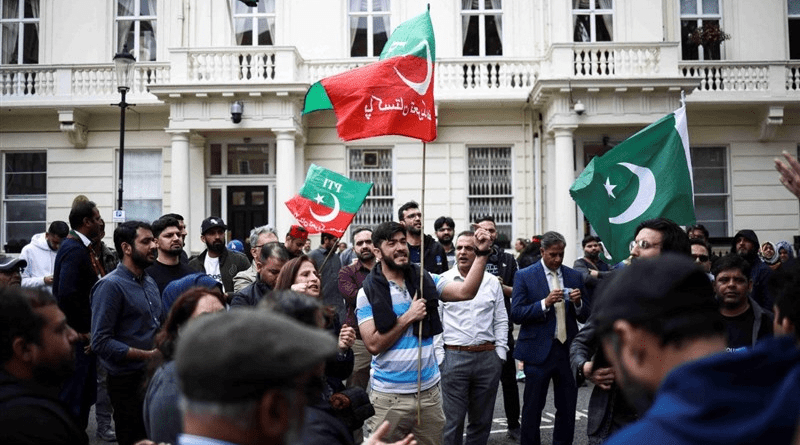Pakistan: Rising Tide Of Political Radicalization – OpEd
Pakistan has grappled with religious radicalization for years, but recent developments in its political landscape have brought to the forefront a concerning trend: the radicalization of politics. This shift marks a dangerous departure from reasoned political discourse and threatens the very fabric of Pakistan’s democratic system. In this article, we delve into the rise of political radicalization in Pakistan, exploring the factors behind this phenomenon and its potential consequences.
At the heart of political radicalization lies an ‘us versus them’ mentality, where individuals view themselves as righteous and others as sinful and evil solely based on their political affiliations. This mindset leads to a dangerous form of polarization, where dialogue and compromise become nearly impossible. In such an environment, patience to listen to opposing viewpoints dissipates, and intolerance takes hold.
Political Parties and Emotional Loyalty
Historically, political parties in Pakistan have attracted supporters based on shared ideologies and manifestos. However, in recent times, emotional loyalty has begun to overshadow these core principles. Party sympathizers are increasingly guided by their emotions rather than an objective evaluation of a party’s performance in governance, economic management, and policy implementation.
This shift is particularly concerning because it erodes the foundation of rational political discourse. Supporters often refuse to entertain any criticism of their chosen leader, shutting themselves off from constructive dialogue. Simultaneously, leaders engage in mudslinging, slurs, and name-calling without hesitation, further exacerbating political divisions.
The emergence of political cults is a disconcerting aspect of this radicalization. Political leaders are elevated to cult-like status through a combination of propaganda, whisper campaigns, and mass media. They are portrayed as messiahs and saviors who can solve all of society’s problems. Supporters of these cults exhibit unwavering devotion to their leaders, often to the point of fanaticism.
Within these cults, a rigid ‘us versus them’ narrative takes hold, where all opponents are vilified as evil forces that must be purged from society. This kind of veneration and devotion to a political figure is gaining ground in Pakistan, further deepening political fault lines.
Root Causes of Political Radicalization
While the radicalization of Pakistani politics is not a new phenomenon, it has been fueled by various factors over the years:
Political Exclusion: The denial of political representation to true representatives has fueled frustration and resentment among various segments of society.
Socioeconomic Disparities: Class-based and regional disparities have created a sense of deprivation and alienation among Pakistan’s mercantile class, youth, and emerging middle and lower-middle classes.
Governance Failures: Many believe that the ruling elite, dominated by feudal and capitalist classes, have exploited national resources for personal gain, depriving the masses of their rightful share.
Conspiracy Theories: Pakistan tends to embrace conspiracy theories and extremist views, which further amplify the radicalization process.
Pent-Up Feelings: The simmering frustration and pent-up feelings among the populace can be likened to combustible material, waiting for a spark to ignite.
Conclusion
The radicalization of politics in Pakistan is a complex and multifaceted issue with deep-seated roots. While it may have been exacerbated by recent political developments, it is not a new phenomenon. The ‘us versus them’ mentality, emotional loyalty to leaders, and the emergence of political cults pose significant challenges to the country’s democratic fabric. It is imperative for Pakistan’s policymakers to recognize the potential consequences of unchecked political radicalization. To address this issue, efforts must be made to channelize these pent-up feelings through democratic processes, promote dialogue, and prioritize the welfare of the people. Failure to do so could lead to disastrous consequences, making it essential to address political radicalization as a matter of utmost urgency in Pakistan’s evolving political landscape.

